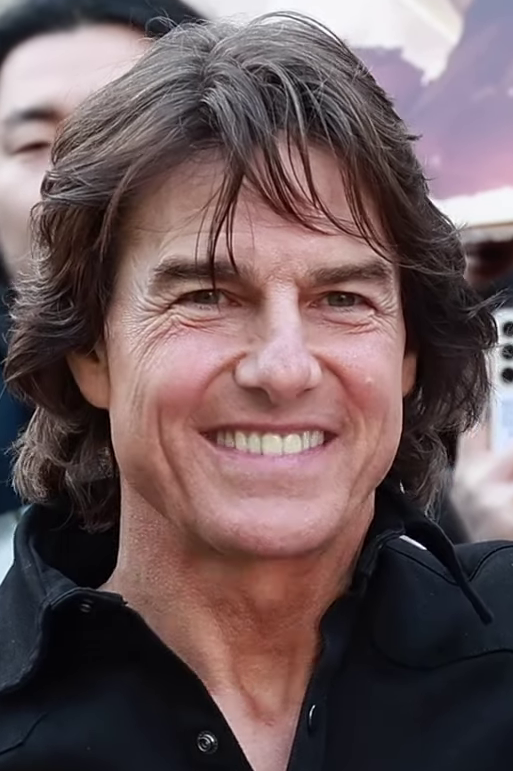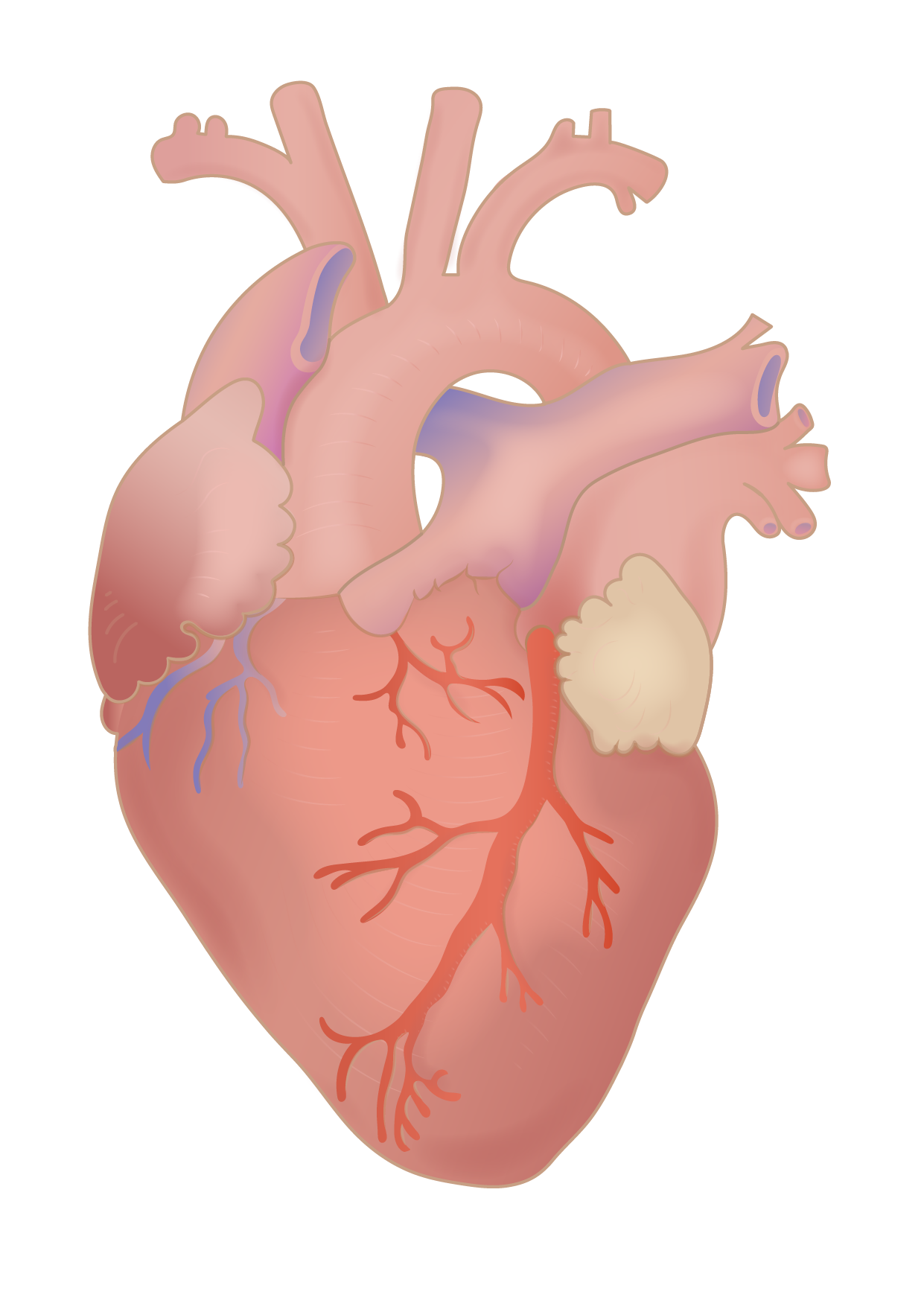
The human heart, a tireless marvel of biological engineering, sustains life with every beat, pumping essential blood to every corner of our bodies. Yet, for all its inherent resilience and vital function, it remains tragically vulnerable to conditions that can suddenly and dramatically alter the course of a life. The world has, on countless occasions, watched in profound shock and collective sorrow as many beloved public figures – individuals who captivated us with their immense talent, inspiring leadership, and unique contributions to society – have been unexpectedly taken from us by the silent, often swift, adversary of heart attacks.
These sudden and often devastating events serve as stark, universal reminders of our shared human fragility, cutting across all boundaries of fame, wealth, or influence. Whether they occurred on a vibrant concert stage, a competitive sports field, or in the quiet, presumed safety of their own homes, these moments of tragedy underscore the indiscriminate nature of cardiac events. Each passing resonates deeply, prompting widespread reflection on personal health choices and the undeniable preciousness of every single moment we are granted.
In this extensive, in-depth exploration, we embark on a journey to delve into the remarkable lives and untimely passings of some of the most famous and influential personalities whose extraordinary journeys were tragically cut short by heart attacks. We will honor their enduring memory by meticulously recounting their impactful careers and examining the poignant circumstances surrounding their sudden departures, thereby shedding crucial light on the pervasive and often silent threat that heart disease poses to us all. Their stories are not just tales of loss, but powerful educational narratives about vulnerability.

1. **Elvis Presley**
When the conversation turns to figures who indelibly changed the landscape of popular culture, Elvis Presley stands alone as an undisputed icon. Universally hailed as “The King of Rock ‘n Roll,” his electrifying stage presence, revolutionary dance moves, and singular vocal style redefined an entire musical era. His unique fusion of rhythm and blues, country, and gospel music shattered genre barriers, creating a sound that captivated millions and continues to influence artists today.
Elvis’s impact extended far beyond the recording studio and concert halls, permeating fashion, performance art, and even broader social attitudes during a period of immense change. He was a phenomenon, a cultural force whose rise to superstardom was unprecedented and whose image became synonymous with the raw energy and rebellious spirit of early rock and roll. His persona, a blend of charm, swagger, and vocal prowess, made him an international sensation, an embodiment of the dreams of a generation.
The news of his sudden passing from a heart attack on August 16, 1977, sent shockwaves across the globe, plunging millions of adoring fans into deep mourning. While the provided context lists him among “Historically important and notable famous people who died of heart attacks,” his inclusion underscores the immense public and historical significance of his loss. Elvis Presley’s legendary status, however, remains undiminished; his music, films, and iconic image continue to resonate, ensuring that “The King” truly lives on through the ages.

2. **Jerry Garcia**
For the better part of three decades, musician Jerry Garcia served as the creative heartbeat and lead guitarist for the iconic American rock band, The Grateful Dead. He toured extensively with the band, playing to adoring fans affectionately known as “Deadheads” across the United States and around the world. The Dead’s yearly tours became a pilgrimage for thousands, defining a transient, musical lifestyle centered around “Jerry-worship,” the trading of bootleg tapes, and an exploration of consciousness through their distinctive sound.
Garcia’s unique blend of improvisational guitar wizardry and soulful songwriting was central to the Grateful Dead’s distinctive sound and enduring appeal. He was more than just a musician; he and the band effectively served as pioneers into the drug culture of the 1960s and ’70s, a role that Garcia, unfortunately, embraced deeply in his personal life. Beyond his work with the Dead, the talented artist also pursued several side projects, further showcasing his prodigious musical talent.
However, Garcia’s life was also marked by significant health struggles. He battled severe obesity, with his weight sometimes ballooning to more than 300 pounds, and was a prolific smoker, consuming around three packs of cigarettes daily for much of his life. Compounding these issues, he developed a serious heroin addiction, which necessitated repeated stays in rehabilitation centers. In 1986, he suffered a five-day diabetic coma, a severe warning sign that prompted an attempt to adopt a healthier lifestyle. Regrettably, these crucial changes did not stick. He continued smoking and remained obese, and his substance use persisted. Tragically, on August 9, 1995, at the age of 53, Jerry Garcia died of a heart attack, a poignant reminder of the devastating long-term consequences of lifestyle choices.
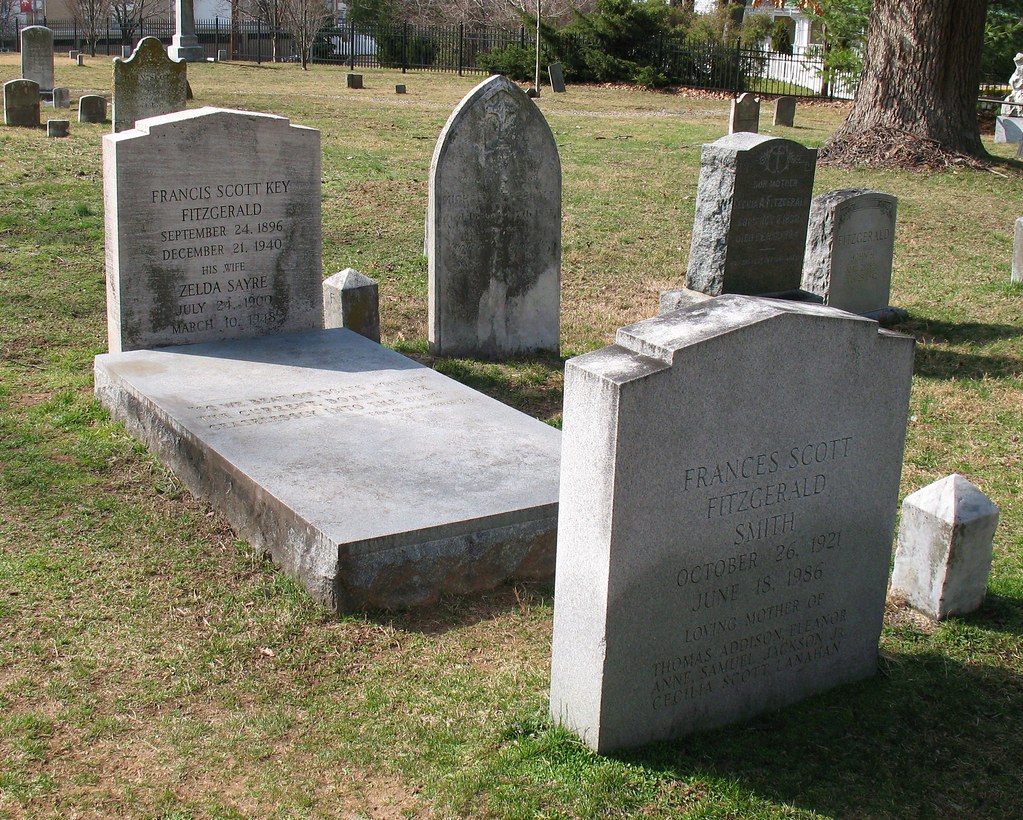
3. **F. Scott Fitzgerald**
Widely regarded as the premier writer of the Jazz Age, F. Scott Fitzgerald was both the astute chronicler and the living embodiment of the exuberant, yet ultimately fragile, spirit of his era. Along with his vivacious wife, Zelda, he carved a wide swath through high society, becoming a dazzling, if somewhat reckless, celebrity couple. This came after the meteoric success of his debut novel, “This Side of Paradise,” soon followed by other masterpieces such as “The Beautiful and Damned,” the enduring classic “The Great Gatsby,” and “Tender is the Night.” His literary works brilliantly captured the shimmering glamour, underlying disillusionment, and reckless excesses that defined the 1920s, cementing his legacy as an indispensable voice of American literature.
Fitzgerald wholeheartedly embraced the “Roaring Twenties” lifestyle, a path that, unfortunately, included heavy smoking, a steady descent into alcoholism, and an insatiable appetite for the extravagant nightlife. This relentless pursuit of pleasure and the associated unhealthy habits took a severe toll, steadily eroding both his physical and mental health. His shattered state of being was poignantly documented in his later collection of essays, “The Crack-up,” offering a raw glimpse into his personal decline. Moreover, the writer’s life was perpetually riddled with self-created financial stress, largely due to a lifestyle that consistently outstripped his earnings. His personal correspondence often revolved around urgent requests for loans and advances from his network of friends, editors, and publishers, highlighting the continuous struggle to maintain his opulent facade.
Despite his attempts to salvage his health, particularly his decision to quit drinking in the final year of his life, the cumulative damage inflicted by years of excess proved irreversible. Fitzgerald suffered his first heart attack in November 1940, a chillingly mundane event that occurred while he was simply purchasing cigarettes at a drugstore. Approximately a month later, on December 21, 1940, at the tragically young age of 44, he experienced a second, ultimately fatal heart attack while reading in the apartment of his mistress. His untimely death brought a premature end to a truly brilliant, albeit deeply troubled, literary career, leaving behind a legacy of iconic novels that continue to define an entire epoch.
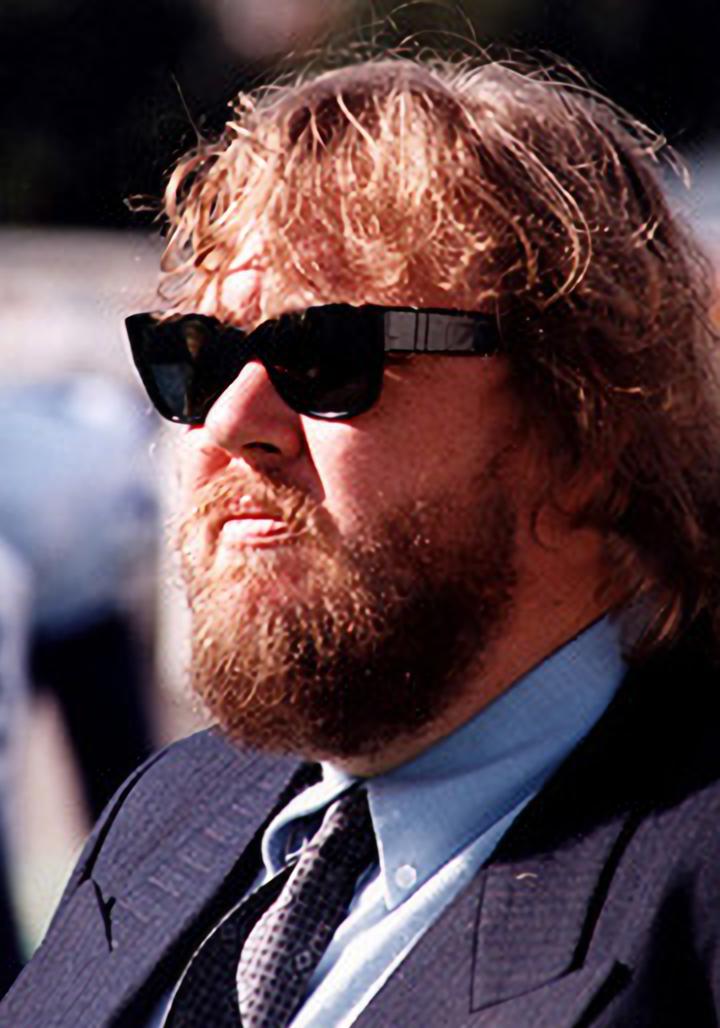
4. **John Candy**
John Candy, a beloved Canadian actor, cemented his place in the hearts of audiences across the United States and worldwide. He frequently portrayed the role of the good-hearted, often bumbling, yet undeniably lovable dummy—a character archetype he perfected, becoming the quintessential “huggable uncle” or the “well-meaning oaf” in an array of memorable films. His comedic genius shone brightly in hits like “Planes, Trains & Automobiles” and “Uncle Buck,” where he masterfully leveraged his physical presence for comedic advantage, making him one of the most endearing stars of his time.
While Candy was celebrated for his ability to use his size to enhance his comedic performances, he reportedly harbored a private discomfort about discussing his weight or health off-camera. This reluctance underscored a deeper personal struggle. For much of his adult life, he was severely obese, often carrying around 300 pounds on his 6-foot-2-inch frame, a significant burden on his cardiovascular system. Adding to these health challenges, he was also a consistent smoker, a habit known to dramatically increase the risk of heart disease and further compromise an already strained heart.
In the 1990s, recognizing the severity of his health situation, Candy made earnest efforts to turn his health around. He quit smoking, a crucial step, and attempted to lose weight, engaging in what appeared to be a genuine commitment to a healthier lifestyle. However, these vital efforts, though commendable, seem to have come tragically late. In March 1994, at the relatively young age of 43, a combination of years of poor lifestyle choices and a hereditary predisposition to heart issues ultimately caught up with him. Like his father and grandfather before him, the universally beloved actor died of a heart attack while filming on location in Mexico, an untimely loss that not only shocked the entertainment world but also served as a sobering reminder of the powerful influence of genetics on heart health.

5. **Tommy Cooper**
On April 15, 1984, the famed British comedian Tommy Cooper met a truly extraordinary and deeply ironic end, collapsing tragically on stage from a reported “heart attack” during a live television broadcast. The event unfolded from Her Majesty’s Theatre in Westminster, with millions of viewers tuned into London Weekend Television’s Variety Show, transforming a moment of entertainment into an unforgettable, somber spectacle witnessed by a vast audience.
Midway through his performance, an act of physical comedy was underway. As his assistant helped him with a red cloak, and the show’s host, Jimmy Tarbuck, concealed behind the stage’s back curtain, prepared to pass Cooper the props that were meant to magically appear from within the cloak, the unexpected happened. Tommy Cooper suddenly collapsed to the ground, emitting gasping noises that, chillingly, were misinterpreted. Initially, both his assistant on stage and the vast audience, accustomed to Cooper’s eccentric and often clumsy comedic style, genuinely believed his fall and distress were all part of the act. The horrific reality was that Cooper was suffering a cardiac arrest, and he died to what were, tragically, “roars of laughter.”
Recognizing the gravity of the situation, Alisdair Macmillian, the program’s director, quickly cued the orchestra to play, initiating an unscheduled commercial break. For a few poignant moments, nothing but a black screen was visible, as no advertisements were on cue for such an abrupt interruption. Cooper was then pulled off the stage, through the curtain to the other side, and in a testament to the adage “the show must go on,” Dustin Gee and Les Dennis were up next with their performance. Cooper’s publicly witnessed demise remains one of the most shocking and tragically ironic celebrity deaths, highlighting the fragility of life even amidst the laughter and bright lights of performance.

6. **Hank Gathers**
Hank Gathers was an exceptionally skilled and supremely talented American college basketball player, widely celebrated as a famed star for the Loyola Marymount University basketball team back in the 1980s. Born on February 11, 1967, his collegiate career was marked by extraordinary achievements; he quickly gained widespread recognition for his outstanding skill, powerful dunks, and remarkable ability to score points, making him one of the most exciting and dominant players in college basketball during his time. His future in professional basketball seemed incredibly bright and assured.
However, Hank Gathers’ promising career and vibrant young life were tragically cut short on March 4, 1990, in a moment that stunned the sports world. During a pivotal West Coast Conference tournament game against Portland, Gathers suddenly collapsed on the court. Despite immediate and desperate efforts to revive him by medical personnel, he was pronounced dead upon arrival at the hospital. The cause of his untimely death was later determined to be sudden cardiac arrhythmia, a devastating and unexpected blow for a seemingly peak-condition athlete. He was only 23 years old at the time of his passing, leaving behind a legacy of immense talent and unfulfilled potential.
In a poignant and enduring tribute to his memory and to foster greater awareness, the Hank Gathers Memorial Foundation was established. This foundation tirelessly works to create awareness of heart conditions, particularly focusing on those affecting athletes, and passionately advocates for mandatory regular cardiac screening. Gather’s tragic story serves as a profound and sobering reminder of the hidden dangers of heart conditions, even for young, seemingly healthy individuals engaged in high-intensity sports, emphasizing the critical need for proactive health measures in athletic communities.

7. **Reggie Lewis**
Born on November 21, 1965, Reggie Lewis carved out a distinguished career as a professional basketball player in the revered National Basketball Association. His exceptional talent, remarkable skills, and unwavering dedication were recognized early on, leading to his selection by the legendary Boston Celtics during the first round of the 1987 NBA Draft. He rapidly flourished within the esteemed Celtics organization, not only becoming one of the team’s indispensable key players but also emerging as a natural leader, both through his on-court performance and his exemplary conduct off the court. His trajectory pointed towards a long and successful career at the highest level of professional basketball.
However, Lewis’s brilliant and burgeoning career, along with his life, was tragically and unexpectedly curtailed by a sudden cardiac arrest. On April 29, 1993, a date etched in the memory of basketball fans, he collapsed during an off-season practice session, a devastating incident that sent shockwaves throughout the entire sports community. Despite immediate medical attention and valiant efforts to resuscitate him, Reggie Lewis’s life could not be saved, leaving an irreplaceable void in the Boston Celtics team and among the legions of fans who admired his talent and character.
In a powerful and enduring gesture of remembrance and respect for his contributions, the Reggie Lewis Track and Athletic Center was established in his memory at Northeastern University. This state-of-the-art facility stands not only as a training ground for aspiring athletes but also as a profound and constant reminder of Lewis’s immense legacy. More significantly, his story highlights the critical importance of understanding, monitoring, and addressing cardiac health within the athletic community, underscoring the vital need for comprehensive health screenings to prevent future tragedies among those who push the physical limits of human performance.
Continuing our journey through the lives of esteemed personalities whose impactful journeys were tragically cut short by sudden cardiac events, we are constantly reminded of the shared human vulnerability that transcends all boundaries of fame or influence. These stories, though somber, serve as powerful testaments to the indiscriminate nature of heart health challenges and underscore the critical importance of awareness, research, and proactive care for everyone. Their legacies endure, not just in their achievements but also in the poignant lessons their untimely departures offer to us all, urging a deeper understanding of our own well-being.

8. **Davide Astori**
Davide Astori, an Italian footballer born in Florence on January 7, 1987, built a remarkable professional career that saw him grace the pitches for prominent Serie A clubs like Roma and Fiorentina, where he began playing professionally in 2008. He was far more than just a skilled defender; Astori was a truly popular figure within the sporting world, deeply respected by teammates, coaches, and fans alike. His game was characterized by an insightful ability to read the play, combined with strong leadership qualities that made him a central figure in any team he joined. His presence on the field brought a sense of calm and strategic depth, earning him widespread admiration.
His vibrant career and life, however, came to an abrupt and deeply shocking end on March 4, 2018. Astori was found deceased in his hotel room in Udine, Italy, mere hours before he was scheduled to participate in a league match. This sudden and inexplicable loss sent immediate shockwaves throughout the entire international football community, leaving many grappling with disbelief. An autopsy was swiftly conducted to determine the cause of this unforeseen tragedy, revealing a devastating and sobering truth about his passing.
The official cause of Davide Astori’s untimely death was determined to be cardiac arrest, a devastating blow for a seemingly healthy and active young athlete. He was just 31 years old at the time of his passing, an age where many professional athletes are still very much in their prime, showcasing peak performance and looking forward to many more years on the field. His death served as a stark and painful reminder that even individuals in peak physical condition can be susceptible to hidden heart conditions, prompting renewed calls for vigilance and more comprehensive health screenings in sports across the globe.
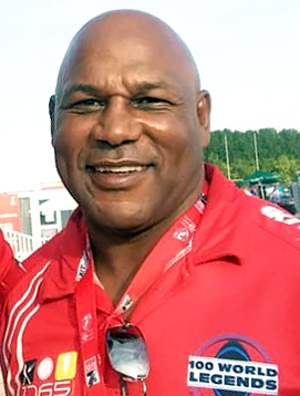
9. **Chester Williams**
Chester Williams, a formidable professional rugby union player from South Africa, left an indelible mark on the sport, celebrated for his powerful play and unwavering dedication. Born on September 12, 1969, his illustrious career commenced in 1993 with the Western Province, and his exceptional talent quickly propelled him to the elite level of the South African national team. He became an integral, key player for the revered Springboks, contributing significantly to their strategic game and embodying the spirit of South African rugby.
Williams’s most iconic and significant contribution to his nation’s sporting history came when his vital role helped lead the Springboks to an unforgettable victory in the Rugby World Cup in 1995. This triumph was not just a sporting achievement; it was a moment of immense national pride and unity for a newly democratic South Africa, a legacy in which Williams played a crucial part. Following a distinguished playing career, he officially retired from rugby in 2001, transitioning his passion for the sport into coaching, notably working with the South Africa Sevens team, where he continued to share his expertise and inspire new generations of athletes with his wisdom and experience.
However, Williams’s life, filled with sporting achievements and continued contributions, was also brought to a sudden and tragic halt. He tragically collapsed during a charity match on August 4, 2019, and passed away, with his death highlighting the persistent and often unseen risks of cardiac events even for retired athletes who maintain active lifestyles. This profound tragedy resonated deeply within the sports community and beyond, contributing to a broader understanding of cardiac health in athletes and ultimately leading to the implementation of mandatory cardiac screening for all athletes in South Africa, a proactive measure that stands as a lasting part of his impactful legacy.

10. **Antonio Puerta**
Born in Seville, Spain, in 1984, Antonio Puerta was a supremely talented football player whose career blossomed early, beginning within Sevilla’s esteemed youth team before making his senior debut in 2003. His exceptional skill, natural talent, and dedication allowed him to quickly establish himself as a significant and indispensable player for the club, becoming a vital component of their most successful period. He possessed a flair for the game that captivated fans and earned the respect of his peers.
Puerta’s remarkable contributions were paramount to Sevilla’s historic achievements, notably helping the club clinch the prestigious UEFA Cup in both 2006 and 2007, marking a golden era of European dominance for the team. His ability to perform under pressure and deliver crucial moments on the field, often with a powerful left foot, made him a fan favorite and a revered figure among his peers, solidifying his reputation as a rising star in European football. His future seemed limitless, with many expecting him to reach the very top of the sport.
Tragedy, however, struck with devastating swiftness on August 25, 2007. During a league match against Getafe, Antonio Puerta suddenly collapsed on the pitch. Despite immediate medical attention and being rushed to the hospital, his condition tragically deteriorated, and he passed away after three agonizing days. At the tender age of just 22, his immensely bright and promising career was cruelly cut short by a sudden and devastating heart attack, leaving the football world in profound mourning for a talent lost far too soon, and sparking widespread concern about athlete heart health.

11. **Dani Jarque**
Dani Jarque, a Spanish professional soccer player, emerged from Barcelona in 1983, embarking on a career that quickly showcased his formidable talent and unwavering commitment. He made his debut with the Espanyol Youth team in 2002 and swiftly became a key and prominent player for the senior team, earning the captain’s armband, a testament to his leadership qualities and reliability. His skill and dedication on the field earned him widespread recognition in a remarkably short span of time, establishing him as a beloved figure among the club’s faithful.
Jarque’s career trajectory was on a rapid ascent, as he went on to make over 200 appearances across all competitions for Espanyol, demonstrating his consistency, reliability, and immense value to the club. He was not just a player but a true embodiment of Espanyol’s spirit, always giving his utmost for the team. His presence in the defensive line was a source of stability and confidence for his teammates and the coaching staff.
However, Dani Jarque’s flourishing career and young life were tragically shattered on August 8, 2009. While attending a pre-season training session in Coverciano, Italy, he suddenly collapsed from a heart attack. The news was met with immense shock and sorrow throughout the football world. Despite the immediate and valiant efforts by medical personnel to revive him, he was pronounced dead shortly after arriving at the hospital. His passing at the young age of 26 left a profound void in the hearts of his teammates, fans, and the broader football community, serving as a poignant reminder of life’s unpredictable fragility and the hidden risks even for elite athletes.
12. **Marc-Vivien Foé**
Marc-Vivien Foé, a revered Cameroonian professional footballer born in May 1975, was a towering and influential presence in midfield, known for his robust play, incredible athleticism, and impactful contributions for both his clubs and his national team. His professional journey began with Canon Yaounde in Cameroon before he transitioned to European football, joining RC Lens in France in 1994. His talent quickly became evident, and he played a pivotal role in helping the club secure the French league title in 1998, a significant achievement that propelled him to greater renown across the continent.
Foé’s impressive performances led him to play for several notable European clubs, including West Ham United, Olympique Lyonnais, and ultimately Manchester City in the English Premier League, where he continued to showcase his midfield prowess and versatility. On the international stage, he was an absolute linchpin for the Cameroon national team, playing a crucial role in their triumph at the 2000 African Cup of Nations, solidifying his status as a national hero and a respected figure in African football, known for his relentless energy and winning mentality.
In a moment of profound shock that reverberated across the globe, Foé’s dream and life were devastatingly cut short on June 26, 2003. During a high-stakes FIFA Confederations Cup semi-final match between Cameroon and Colombia, he suddenly collapsed on the pitch in Lyon, France. Despite desperate attempts by medical staff to save him through CPR and defibrillation, Marc-Vivien Foé tragically died. This publicly witnessed tragedy served as a poignant testament to the fragility of life, even for athletes at the pinnacle of their physical capabilities, and significantly heightened global awareness and led to increased scrutiny about the necessity of thorough cardiac screenings for professional athletes worldwide.
These narratives collectively paint a vivid and sobering picture of the relentless and indiscriminate nature of heart attacks and sudden cardiac arrest, a pervasive health challenge that impacts individuals from all walks of life, regardless of their fame, wealth, or athletic prowess. While their untimely departures left an undeniable void in their respective fields and in the hearts of those who admired them, the stories of these remarkable figures also serve as powerful catalysts for vital conversations about heart health. They inspire greater public awareness, advocate for the importance of early detection through comprehensive screenings, and underscore the critical need for continued research into cardiac conditions. Their legacies, far from being solely about their celebrated achievements, are also about the crucial, life-saving lessons their sudden passings impart to us all, reminding us to cherish every moment and prioritize the health of our most vital organ.

